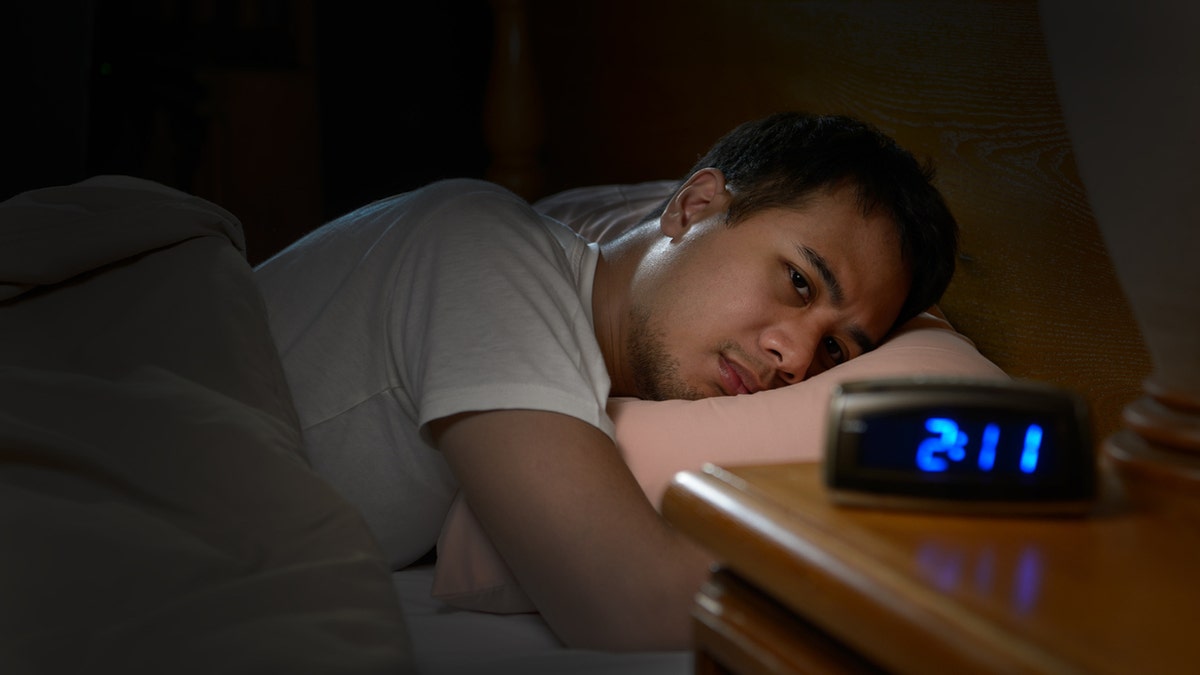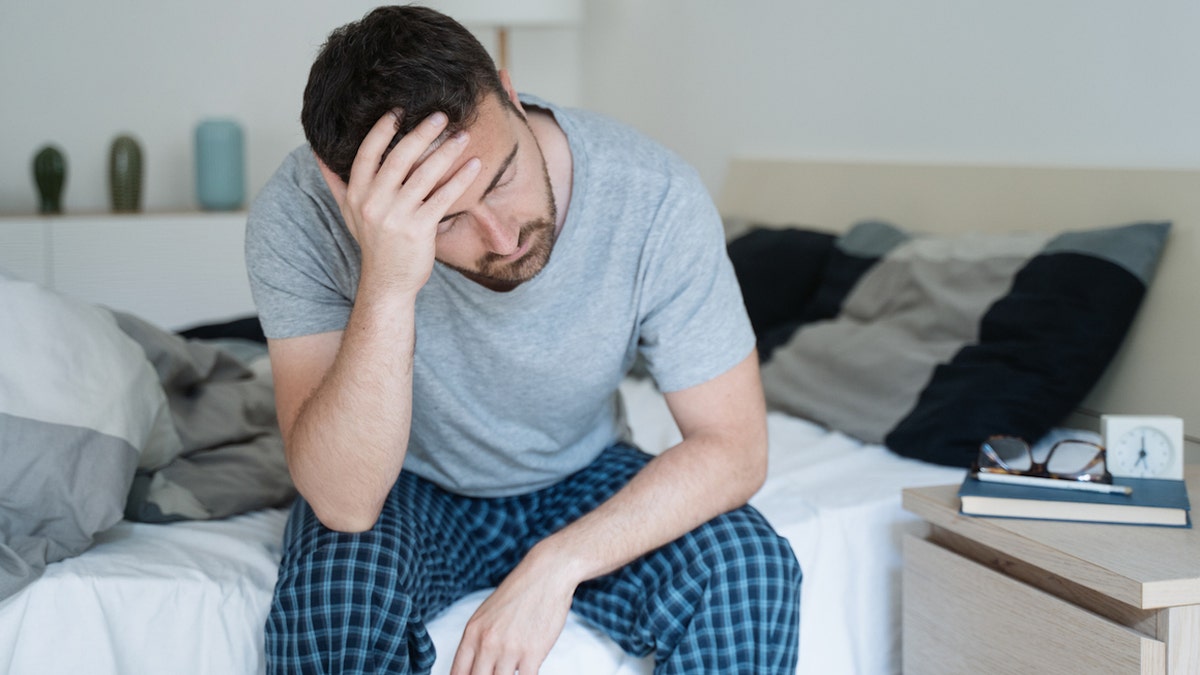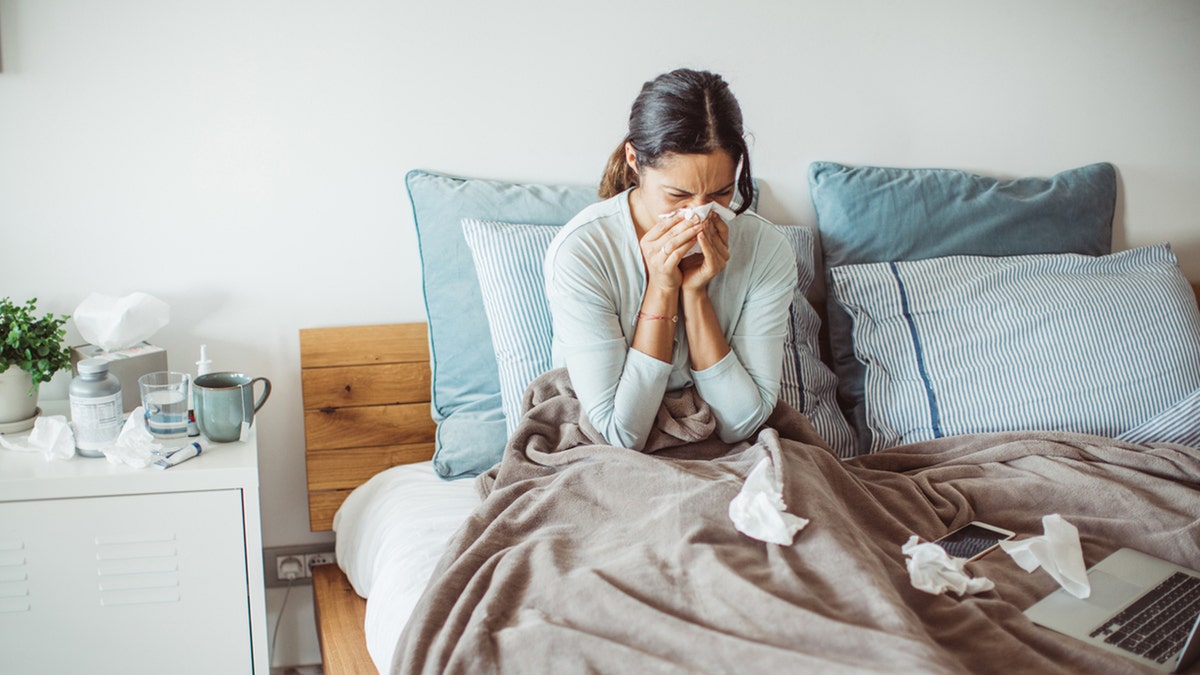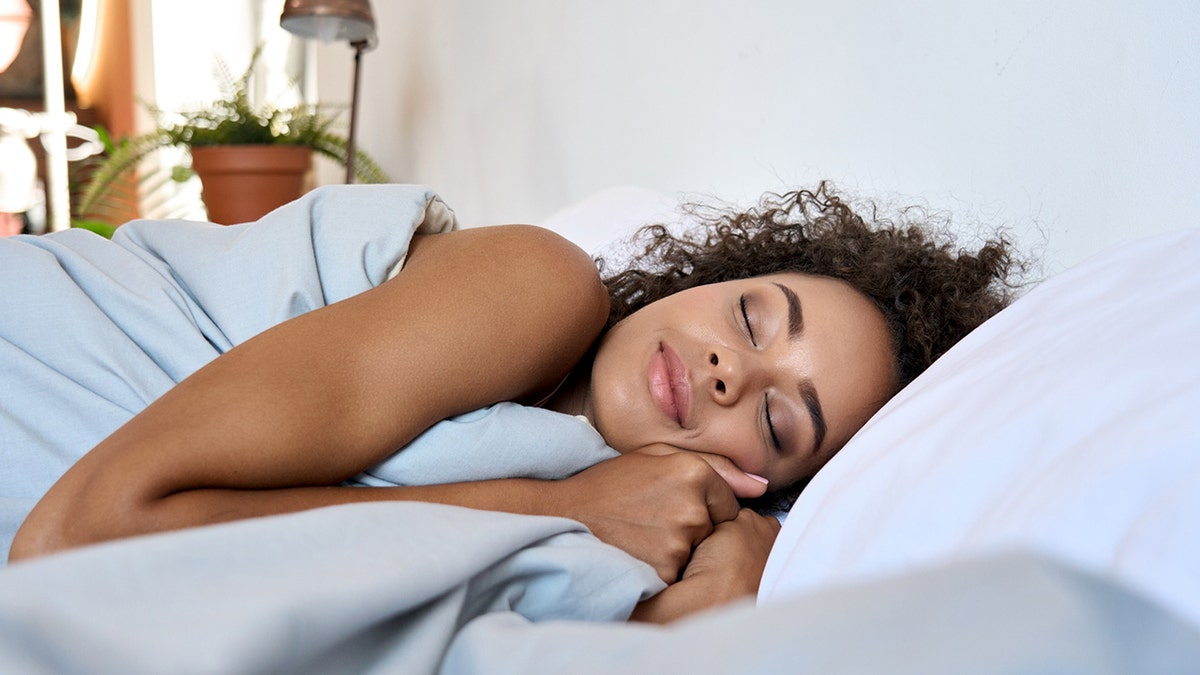
Most people have sacrificed sleep at some point, but those extra waking hours could come at a price.
While it can be tempting to burn the midnight oil — whether it’s to get some work done, knock out a home project or care for a loved one — forgoing rest can wreak havoc on your health.
Fox News Digital spoke to experts about the short- and long-term effects of pulling an all-nighter — and how to rebound after a period of missed sleep.
DOES THE ‘SLEEPY GIRL MOCKTAIL’ REALLY WORK? EXPERT WEIGHS IN ON THE VIRAL SLEEP TREND
Here’s a deep dive.
What does staying up all night do to the body?
Pulling an all-nighter can have several impacts on the body, both physically and mentally, according to Dr. Leah Joseph, a primary care physician with New York-based Teladoc Health.

Pulling an all-nighter can have several impacts on the body, both physically and mentally, doctors warned. (iStock)
“The physical effects include weakening your immune system, which makes you more susceptible to illnesses,” she told Fox News Digital.
“Your body may also release a higher level of cortisol, which leads to elevated stress levels.”
In addition, sleep deprivation can result in impaired memory, concentration and overall cognitive function, Joseph noted.
GOOGLE SEARCHES FOR ‘SLEEP’ REACHED ALL-TIME HIGH IN 2023, NEW STUDY NOTES
“The mental effects include mood changes, which can contribute to irritability, anxiety or depression,” she said.
“It also affects your decision-making, as your judgment may be negatively affected.”
Alex Dimitriu, M.D., who is double board-certified in psychiatry and sleep medicine and is founder of Menlo Park Psychiatry & Sleep Medicine in California, also warned of adverse effects.
“Even a single night of insufficient sleep leads to a buildup of toxins in the brain similar to those seen in people with Alzheimer’s disease.”
“There is evidence that even a single night of insufficient — or worse yet, absent — sleep leads to a buildup of toxins in the brain similar to those seen in people with Alzheimer’s disease,” he told Fox News Digital.
“Similar to Alzheimer’s, even one night of lost sleep can cause fatigue, impaired impulse control, mood instability, diminished attention and memory — all symptoms similar to ADHD.”

Staying up all night can significantly disrupt your sleep schedule and circadian rhythm, a doctor warned. (iStock)
“Underslept” people are more likely to suffer from a variety of psychiatric conditions, Dimitriu said.
Those include depression, anxiety, substance use, memory impairment and possibly an eventual increased risk of dementia.
“The brain needs sleep to clean up and reset,” he said.
Physically, lost sleep causes increased carb craving, diminished immunity and increased stress hormones, such as cortisol and adrenaline, he added.
“The brain needs sleep to clean up and reset.”
“The increased stress hormones, in turn, can elevate heart rate, blood pressure and blood sugar.”
Is an occasional all-nighter safe?
While pulling an occasional all-nighter may include include fatigue, irritability, impaired cognitive function and a temporary disruption of the sleep-wake cycle, Joseph said it may not cause significant long-term damage on its own.

Consistently skipping sleep over an extended period can lead to chronic sleep deprivation, which can have severe consequences over time. (iStock)
“Occasional all-nighters may not cause significant long-term damage if followed by sufficient recovery sleep,” she said. “The human body is resilient and can generally recover from short-term sleep deprivation.”
Consistently skipping sleep over an extended period can lead to chronic sleep deprivation, however, which can have more severe consequences over time.
Those impacts can include an increased risk of cardiovascular disease, diabetes, obesity, impaired immune function and mental health issues, Joseph said.
NEW YEAR CAN BRING BETTER SLEEP AT NIGHT IF YOU FOLLOW THESE 9 SMART STEPS
Sleep deprivation will affect different people in different ways, she noted, as individual factors and resilience play a role.
“An all-nighter never killed anyone,” Dimitriu agreed. “However, they add up, and you will still feel miserable after a night of no sleep, and will not perform at your best.”

The physical effects of all-nighters include weakening of the immune system, which makes people more susceptible to illness. (iStock)
What to do after an all-nighter
Staying up all night can significantly disrupt your sleep schedule and circadian rhythm, Joseph said.
“The circadian rhythm is a natural, internal process that regulates the sleep-wake cycle and repeats roughly every 24 hours,” the doctor said.
“When you stay up all night, you throw off this cycle, leading to several potential effects on your sleep schedule.”
SLEEPING LONGER OVER THE WEEKEND COULD HELP PREVENT HEART ATTACKS, SAYS STUDY
After pulling an all-nighter, it may take some time for the body to readjust, and this can lead to temporary insomnia or difficulties falling asleep at the usual time, according to Joseph.
“Some potential effects that someone can suffer from include delayed sleep onset, irregular sleep patterns, increased sleep debt and difficulty regaining normalcy,” she said.

Exposure to morning sunlight can help regulate the circadian rhythm and get back to a regular sleep schedule, experts say. (iStock)
To mitigate the impact on your sleep schedule, prioritize getting back on track as soon as possible, said Joseph.
Some strategies include shifting to an earlier bedtime, spending time outdoors during daylight hours to help regulate your circadian rhythm, and establishing a consistent sleep routine by going to bed and waking up at the same time each day, according to Joseph.
“Personally, I also like to limit caffeine close to bedtime and stay hydrated,” she said. “If I do need a nap, I limit it to 20 to 30 minutes.”
CLICK HERE TO SIGN UP FOR OUR HEALTH NEWSLETTER
Dimitriu also recommended getting some sunlight exposure in the morning to reset your rhythm.
“Morning light is really important to getting you to bed at night,” he said.
Getting outdoor physical activity during the day, eating a light dinner and going to bed a little earlier than usual can also help regulate sleep cycles, the doctor advised.

“Prioritizing regular, sufficient sleep is essential for your overall well-being,” a doctor advised. (iStock)
Both experts agreed that the best strategy is to plan for healthy sleep and avoid all-nighters.
“Your performance after a night of not sleeping can be markedly diminished,” Dimitiu said. “All-nighters are often the result of poor planning, so try to plan ahead and avoid nights of lost sleep.”
CLICK HERE TO GET THE FOX NEWS APP
Joseph added, “While occasional all-nighters may not have severe long-term consequences, making them a habit can contribute to health issues over time.”
“Prioritizing regular, sufficient sleep is essential for your overall well-being.”
For more Health articles, visit www.foxnews.com/health.

 Latest Breaking News Online News Portal
Latest Breaking News Online News Portal




